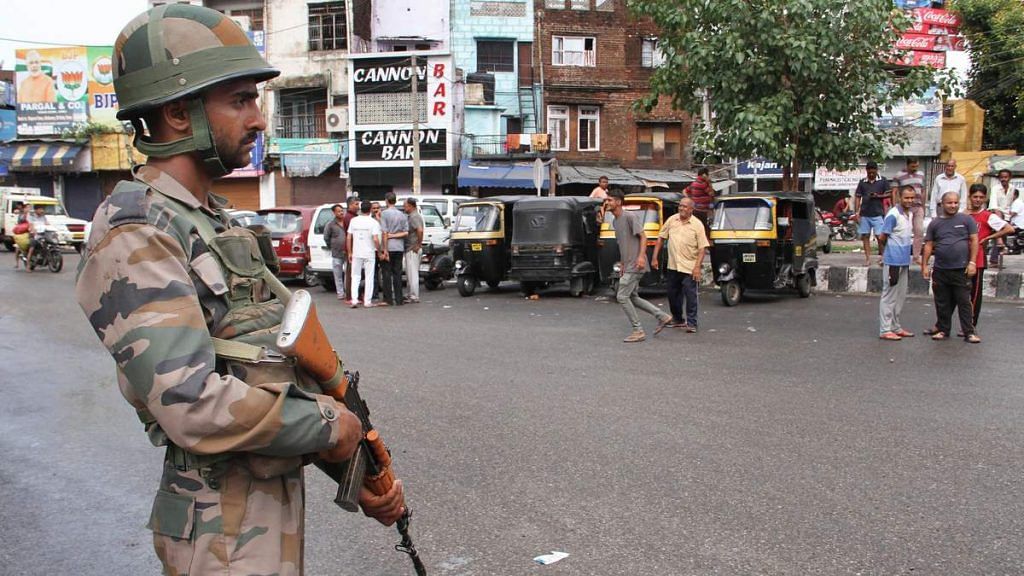New Delhi: The “special status” granted to Jammu and Kashmir under Article 370 has been scrapped, Home Minister Amit Shah announced in Rajya Sabha Monday.
The order has been signed by President Ram Nath Kovind.
Shah also announced bifurcation of the state with Ladakh division to now become a Union Territory without a legislature, and Jammu and Kashmir to be one Union Territory with a legislature.
He said while it was a “long-standing” demand of the locals of Ladakh, the decision in Kashmir was taken keeping in view “prevailing security situation”.
“The Ladakh area is large but is sparsely populated with a very difficult terrain. This has been long-pending demand of the people of Ladakh to give it the status of Union Territory to enable them to realise their aspirations. The Union Territory of Ladakh will be without Legislature,” a statement by Shah read.
Also read: BJP wants to revoke Article 370, ironically Sardar Patel was its architect
On Jammu and Kashmir becoming a Union Territory, Shah stated, “Keeping in view the prevailing internal security situation fuelled by cross-border terrorism in the existing state of Jammu and Kashmir, a separate Union Territory for Jammu and Kashmir is being created. This will be with legislature.”
According to a source in the security establishment, the announcement could result in deterioration in law and order situation in the Valley, where over 300 companies have been deployed.
What is Article 370?
Article 370 was introduced to recognise the “special status” of Jammu and Kashmir and says that the power of Parliament to make laws in the state are only limited to subjects that fall under the Union and Concurrent list.
This was because the accession of Jammu and Kashmir was conditional to their being given the rights and sovereignty.
It means that the laws made by the state regarding settlement and acquisition of property will prevail and not be struck down on the ground that they violate fundamental rights.
Since that was the condition for accession to India, it cannot be challenged on the ground that it violates fundamental rights or the basic structure of the Constitution.
Apart from the autonomy, Article 370 also lends other powers such as the need of “concurrence of the state government” if the central government plans to make amendments to the concurrent list of subjects.
Also read: With special status hollowed out, J&K considers Article 35A last vestige of real autonomy
How will it affect Article 35A?
The announcement by Shah also means that Article 35A becomes meaningless. This provision of the Constitution allows Jammu & Kashmir to define who is a “permanent resident” of the state and who is not.
The provision was inserted in the Constitution through a special Presidential order in 1954 and gives special powers to the state to determine who can be the recipient of special rights and privileges in public sector jobs, acquisition of property in the state, scholarships and other public aid and welfare.
For instance, who can purchase land and property in the state, who can settle permanently as a resident in the state, who can be employed in public sector is determined through Article 35A.
It further also deters women from the state to marry outside the boundary of the state, and if she does, her children cannot be permanent residents. This also restricts her right of inheritance.
The provision also mandates that no act of or by the state legislature can be challenged or questioned for violating the Constitution or any other law of the land as it is a special provision just for the state of Jammu and Kashmir.
Also read: Modi’s Mission Kashmir was to make scrapping of Article 35A a necessity. That moment is now
